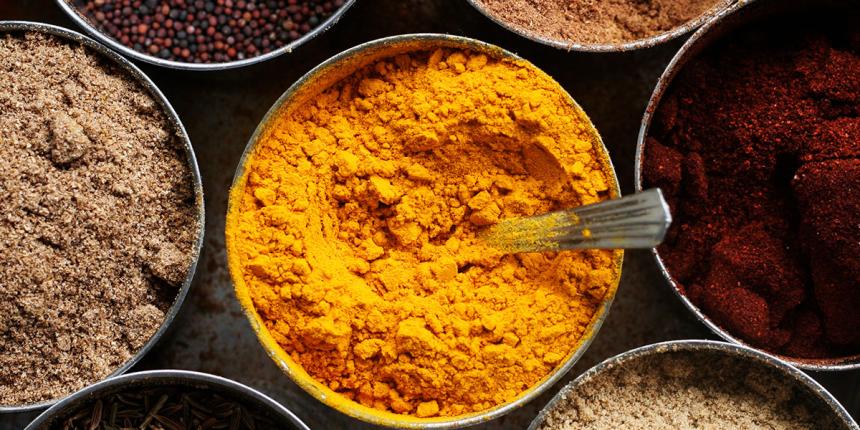Can Turmeric Lower Your Cancer Risk? It Shows Promise

Can turmeric help prevent cancer? It sure seems so – if you’re an incurable optimist. The truth is more nuanced than the hype about this supplement.
Studies do show turmeric (or its powerful antioxidant, curcumin) has anticancer activity. The problem is that a lot of these studies are small or in cell lines or in animal models. Scientists need to replicate promising findings in humans, at realistic doses, in order to move from hypothesis to recommendation. We’re not there yet with turmeric and cancer.
Still, taking a supplement can help you feel more in control of your health destiny, and turmeric may be a reasonable choice. Here are five things you should know about it.
1. Turmeric and curcumin are not the same thing.
People use the words turmeric and curcumin interchangeably but inaccurately.
- Turmeric is the root of a plant in the ginger family. Curcumin is one of several health-promoting compounds within the root.
- Turmeric, a bright yellow powder, is used as a cooking spice, a fabric dye, and a medicine in India and elsewhere. Curcumin, which gives turmeric its yellow color, is strictly a supplement.
2. Curcumin is an antioxidant, which protects cells from damage and reduces inflammation. When it comes to cancer, these properties mean that curcumin can help:
- Reduce pain and swelling from radiation treatment (also known as radiotherapy)
- Protect cells and cell parts from damage
3. Curcumin interferes with signaling pathways in breast cancer.
This essentially means that curcumin sabotages certain lines of communication that would allow cancer cells to organize a coup.
4. Too late to prevent cancer? Curcumin may help with what comes next.
A large, systematic review in the journal BMC Cancer identifies ways curcumin may fight several types of cancer.
- Reduces growth of new tumor blood vessels
- Causes cancer cell death
- Interferes with growth of new cancer cells
5. Turmeric may boost the effectiveness of cancer treatments, potentially resulting in:
- Longer survival time
- Increased expression of anti-metastatic proteins (substances that help prevent cancer from spreading)
- Fewer side effects from both chemotherapy and radiotherapy
- Improved quality of life
A Few Caveats…
Because turmeric has been widely used for so long, you might assume it’s as safe to take as a cup of tea (which, by the way, also has anti-inflammatory and anticancer properties). You’d be right – but only with respect to the spice form. Go ahead and sprinkle that on your food, stir it in stews, even steep it with that cup of tea.
Supplements are a different story. They deliver a much higher concentration of nutrients than you’d normally get in food. This can and does lead to drug interactions and uncomfortable side effects.
Talk to your MDVIP-affiliated doctor before you try any supplement, including turmeric. Tumeric, for example, can interfere with certain drugs, such as:
- Over-the-counter anti-inflammatories. Turmeric may lessen their effects.
- Blood thinners. Turmeric may increase the risk of bleeding.
- Chemotherapy medications. Turmeric may lessen their effects.
- Tacromilus (prograf). Turmeric may increase side effects.
